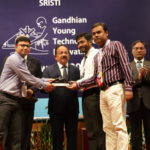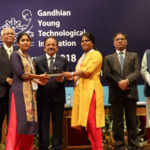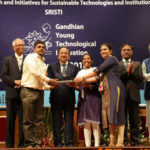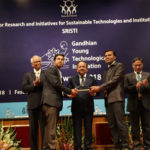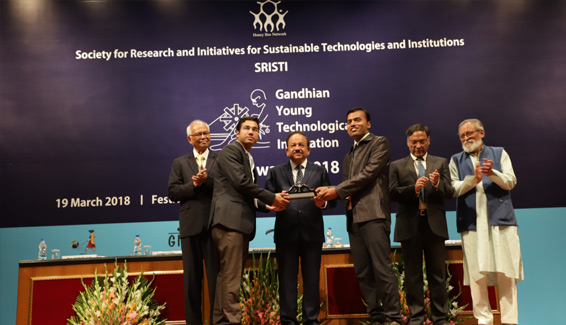
Frugal, Yet High Tech, Innovations That Can Change Your Lives
- News
- 2.6K
A multipurpose and low-cost biological air purifier, a smartphone-based system for detection of cardiac biomarkers, a window solar cooker, a rolling water carrier-cum- purifier, buzzing bands for speech and hearing impaired, an augmented rehabilitation system for stroke patients, an eco-friendly water retention natural polymer, a rapid cervix cancer detection system and a social search engine.
These are among winners of Gandhian Young Technological Innovation (GYTI) Awards for 2018. The innovations and prototypes are on display at the Festival of Innovation and Entrepreneurship inaugurated by the President of India at Rashtrapati Bhawan on Monday.
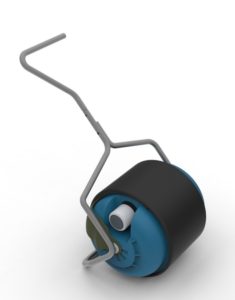
Rolling water carrier-cum-purifier
GYTI awards recognize technological excellence imbued with social relevance among students from all over the country. Out of over 2900 entries in 54 technology domains received from over 300 universities and institutions, 51 have been awarded this year. And 15 of them have got a research grant of Rs 15 lakh each to pursue their projects. The award winners come from IITs, Indian Institute of Science, central and state universities and research institutions.
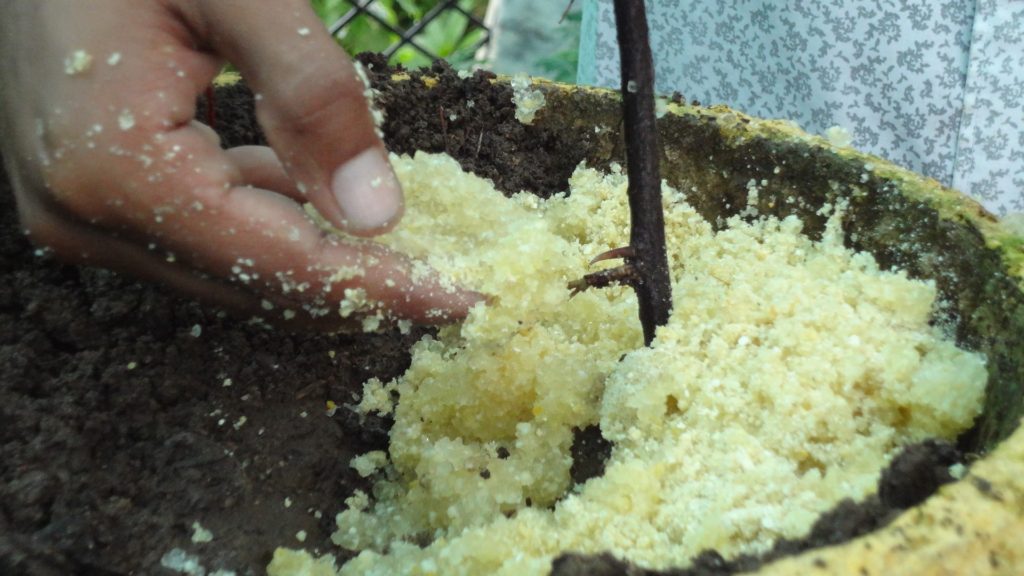
Water-absorbent polymer
The innovations span a large number of sectors– water and sanitation, early detection of communicable and non-communicable diseases, air pollution, technologies for differently abled, engineering and digital technologies. For instance, a team led by Divya Beri at Indian Institute of Science, Bangalore has developed a new strategy to block transmission of malaria, while Brince Paul and the team from IIT Hyderabad has come up with a low-cost, disposable microfluidic chip diagnosis of malaria.
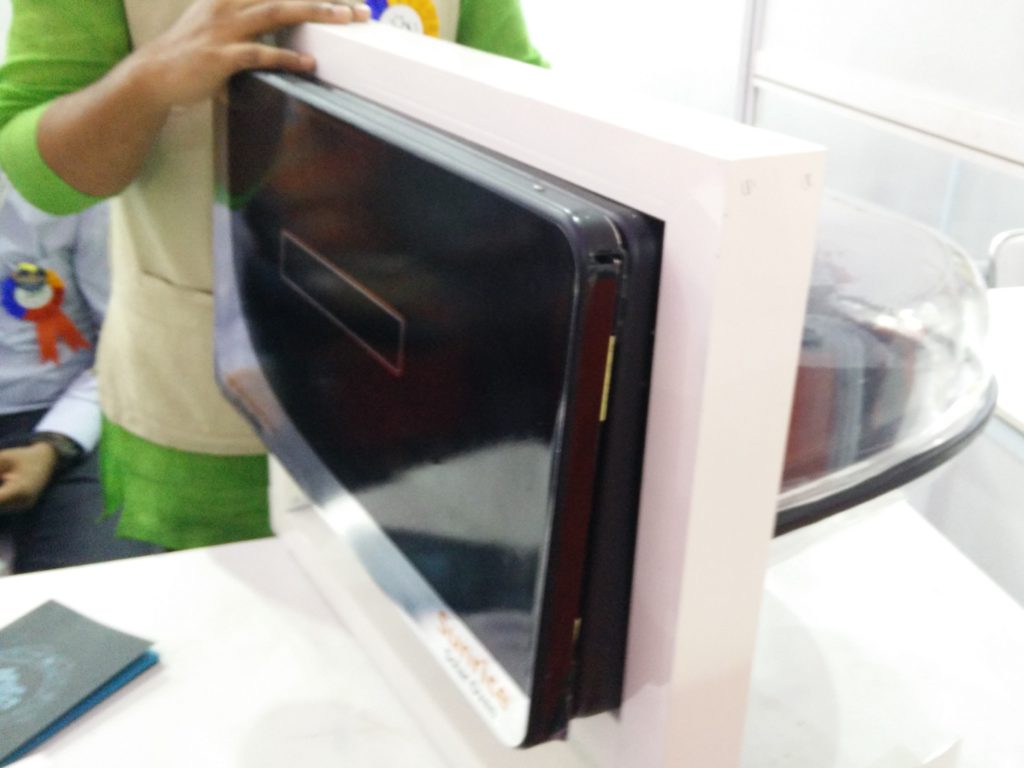
Window solar cooker
Debasmita Mondal and Sourabh Agarwal from IIT Bombay have developed a smartphone-based system for detection of two common cardiac biomarkers – myoglobin and myeloperoxidase. Technological innovations in agriculture sector include a novel technique to replenish micronutrients in soil using iron-capped nanomaterials. It has been developed by Pallabi Das and Kasturib Sarmah of Tezpur University. Ravi Prakash of National Dairy Research Institute, Karnal, has designed a low-cost milking and cooling plant based on Phase Change Material.
A few years back, a grassroots innovation of hippo roller – a rolling drum to transport water in the rural area – had caught wide attention. Now Ramesh Kumar and Swathy Ravindran of IIT Madras have gone a step further – they have made the roller into a water purification system also. This means as water is transported in the roller, it will also get purified. The rolling water purifier designed by this team has an outer body to deal with mechanical forces and a polybag to store filled water which makes sure that even if barrel body is broken or cracked, there are no water leakages. It purifies water as it is transported, using novel nanomaterials without any power requirement.
Neeta Ganesh Waghle and Priti Prabhakar Yewale from D Y Patil Vidyapeeth, Pune, have designed a biological air purifier which has a compact carriage assembly containing replaceable adsorbent packed in biodegradable pouches or wrappers. The natural biomaterials used as solid porous material act as an adsorbent. Since the material is recyclable, it reduces the cost. The purifier, according to the students, can be installed at the mouth of automobile exhausts. In tests done by them, it has been found that it considerably reduces levels of carbon monoxide, nitric oxide, and nitrogen dioxide.
The window solar cooker designed by Avinash Prabhune of IIT Bombay looks pretty much like a microwave oven and it can be fitted into a window like an air conditioner. Unlike old-fashioned, box-type solar cooker, this one has a cylindrical chamber that makes sure that it absorbs sunlight all through the day. It has a higher efficiency compared to box-type cookers and cooks faster. Prabhune says it can be ideal for those living in multistoried buildings and those with a taste of ‘slow food’.
The team of Narayan Lal Gurjar, Shashi Pratap Shekhawat and Ankit Jain of Maharana Pratap University of Agriculture Technology, Udaipur, has identified a natural polymer for water retention. While superabsorbent polymers that can absorb and carry water about 300 times their weight are commercially available, they are very costly and are not biodegradable. The team has developed a super absorbing material using orange and avocado peels. The material can retain large amounts of water and keep soil moisture high for the crop.
The GYTI awards are given by National Innovation Foundation (NIF), Society for Research and Initiatives for Sustainable Technologies and Institutions (SRISTI) and Biotechnology Industry Research Assistance Council (BIRAC). (India Science Wire)
By Dinesh C Sharma
For the latest Science, Tech news and conversations, follow Research Stash on Twitter, Facebook, and subscribe to our YouTube channel
